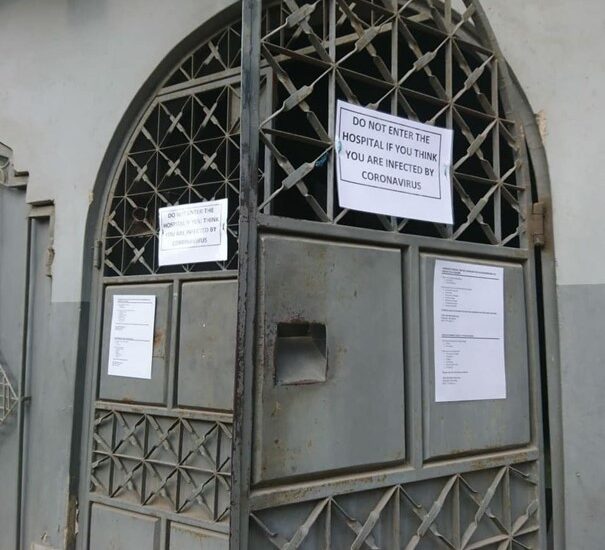Participant report on her talk “Consequences of the corona pandemic for German-Kenyan cooperation using the example of an NGO-supported primary care hospital in Kenya (no intensive care unit)” by Lea Decker.
While the coronavirus is spreading around the globe, we have all experienced different personal-, health- or work-related consequences of the pandemic. Borders are closed worldwide, restrictions on movements, curfews and lockdowns have been imposed. Healthcare workers have been praised with applause, but rarely have seen other support.
In my talk at the 2020’s ANSA conference I gave insights of what the pandemic crisis meant for our team in a primary care hospital in Likoni, Kenya. Moreover, I emphasized the consequences for international partnership as this Kenyan hospital, which was founded by a Kenyan doctor, cooperates with a German NGO (Likoni – Healthcare for all e.V.). Last year, I myself spent 14 weeks interning as a fifth-year medical student in that hospital and since then continued to work as the organization’s Social Media Officer from Germany. The plans of returning to Kenya this year had been canceled due to the pandemic. Nevertheless, I stayed in close contact to both our Kenyan chief physician and our German chairwomen.
Surprising findings…
Even though most people might have expected that I would talk about crowded hospital wards, actually the opposite is the case: People in the structurally weak region of Likoni fear the virus as well as the police power which enforces governmental restrictions, at times violently. Also, more than ever, people need the daytime to make a living and try to feed their families. Thus, the hospital hardly sees patients during the day. We even had to dismiss some staff at the hospital as there is nothing to do. Then, when the working day is coming to an end, between work and curfew times, our wards suddenly become overcrowded by people who still dare to come to the hospital. That leaves our staff with a high stress level trying to finish with every patient before start of the curfew as they do not want to be responsible for any confrontations with the police. Asking our Kenyan team, they stressed how physically and psychologically drained they were.
Facing a general global health problem?
Considering that many patients fear to come to the hospital now, we are facing another “silent” global health problem. It is very logical that only because of the presence of the coronavirus, other diseases like malaria or diabetes are not decreasing. Nevertheless, the number of patients treated has decreased sharply, leaving our health professionals with the bad feeling of knowing that sick people are in their villages, not receiving the healthcare they need because of their fear to come to the hospital. Delayed treatment or no treatment at all might lead to deaths and handicaps – depending on the disease that was missed to be treated.
A hospital is an economic business
The fact that patients are not coming into the hospital anymore, leads to economic consequences as well. Before the global pandemic, the hospital received money in two main ways: treating patients in need, whose bill would be covered by the NGO, and treating wealthy patients, who paid cash. Since the pandemic’s start, both proceedings decreased a lot, leading to less income.
Moreover, the hospital is highly dependent on a continuous supply of medication and material. Since the beginning of the crisis – and with that the start of huge impacts on the international market – we have been facing a worrying lack of even basic medication.
International partnership during the pandemic?
Despite the great challenges due to the crisis, we found that the international partnership between Kenya and Germany within this project have improved. During my presentation, I showed an interview in which I asked both our Kenyan chief physician and our German chairwomen how they feel about the partnership and the project. It became clear that trust and the feeling of togetherness have increased – even though due to travel restrictions no Germans are able to actively participate in the project in Kenya. Examples for better trust and partnership were the easier transfer of donation money from the NGO, even if bills were delayed and were handed in later.
All in all, I hope I could emphasize some firsthand insights of how this project and the hospital are affected by the pandemic and hope to have given a good example of being “brought together” even in hard times. We are all in this together.

Lea Decker was born in Friesoythe, Germany and studied medicine at the University of Oldenburg as well as one semester at the University of Groningen (Netherlands). Currently she is doing her doctoral thesis on peripheral nerve regeneration at the lab for experimental ophthalmology in Oldenburg. She spent a 14-week internship in Kenya and since then is the Social Media Officer of Likoni – Healthcare for all e.V. Lea is an ANSA member since 2020.
